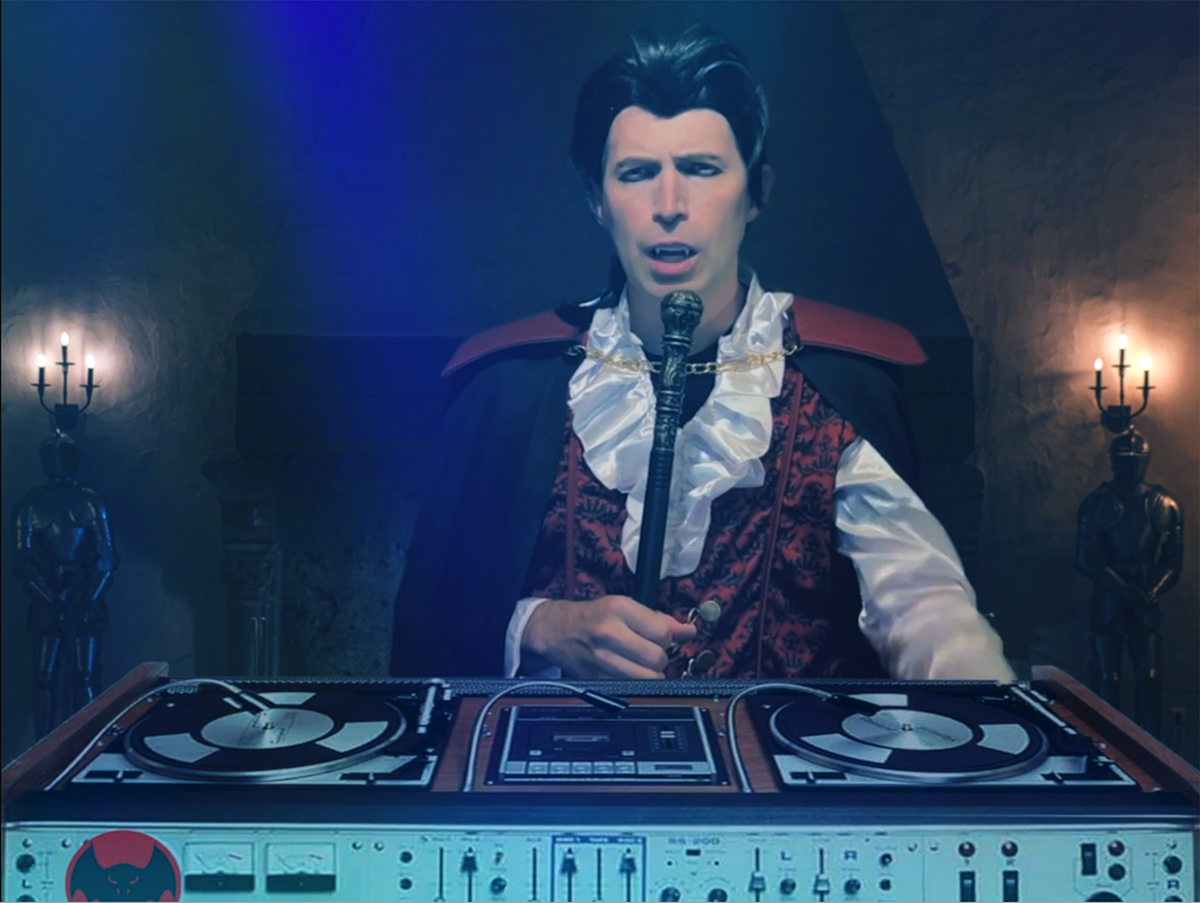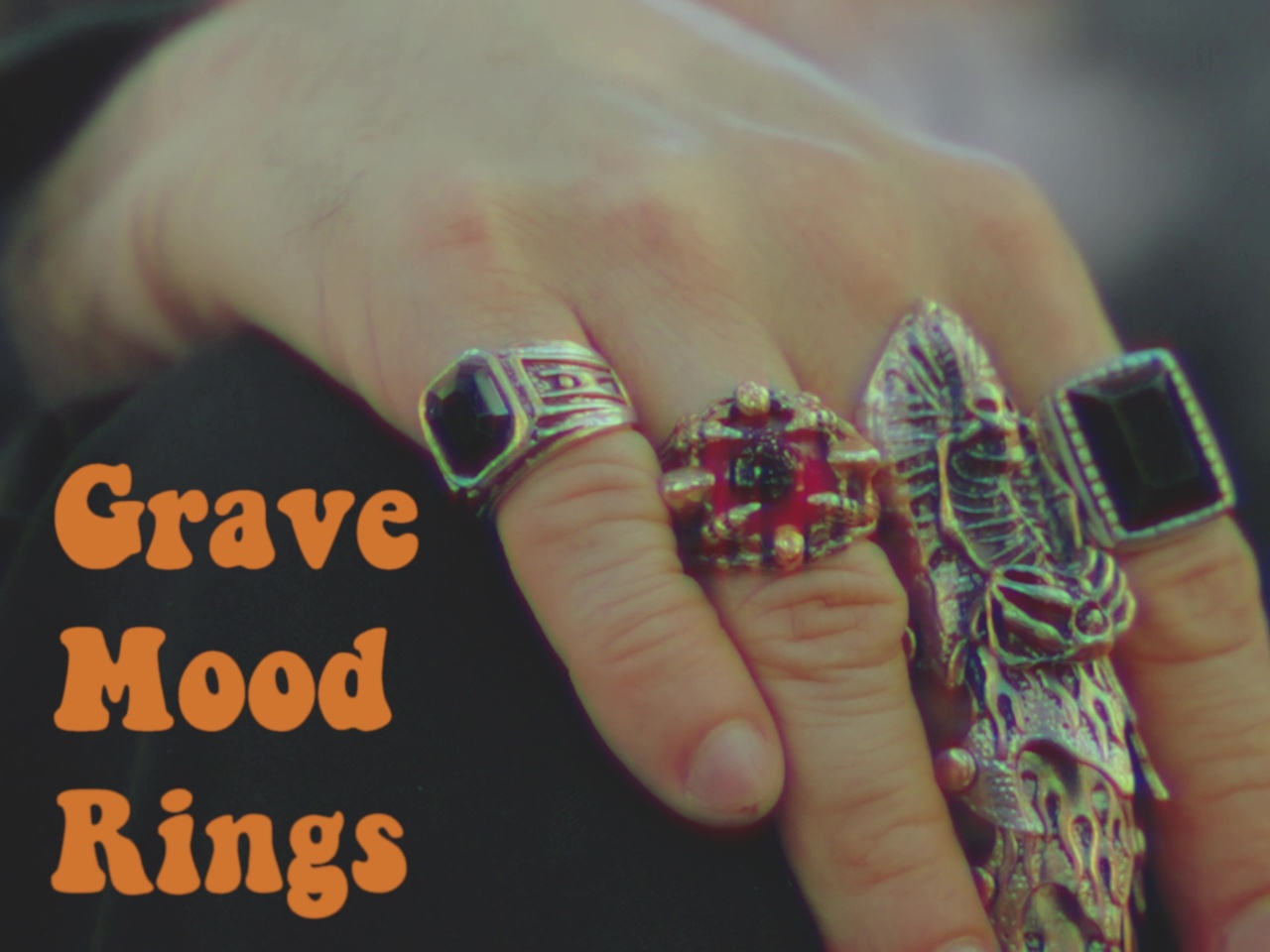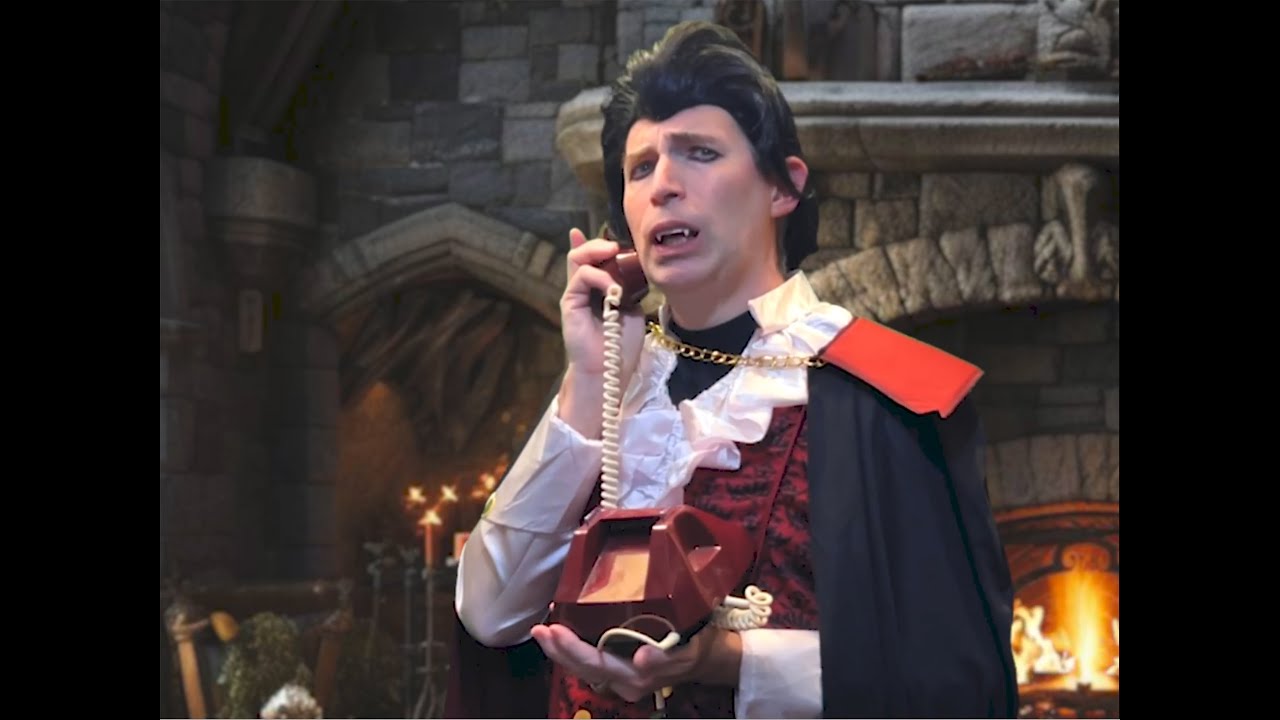Inside the Strange Genius of Grave Mood Rings
From Spacey Panda Music

Imagine a Gothic soap opera from the 1970s collided with a midnight electronica musical and decided to keep rolling. That’s Grave Mood Rings: a surreal comedy that manages to be both hilarious and haunting, filled with layers of theatricality and sound. Across its many episodes, it somehow delivers fifty-two original theme tunes and song interludes, making it one of the most musically ambitious parody series I’ve ever seen.
I connected with Craig Conley, the show’s co-writer, director, cinematographer, and producer. Alongside his creative partner Michael Warwick, who plays every character himself, edits the episodes, and co-produces the music. They’ve built something completely unique: a surreal hybrid of Gothic melodrama, experimental music, and tongue-in-cheek performance art. It’s campy and clever, but also surprisingly heartfelt.
I wanted to dive into how such an unconventional world is made, what drives their creative energy, and how they keep the ideas flowing episode after episode.
By my count, there are 52 unique theme tunes and song interludes in your absurdist comedy series spoofing slow-moving Gothic soap operas of the 1970s. Is Grave Mood Rings out to beat the 170 distinct versions of the Seinfeld theme song? And are you actually a band disguised as a TV series, like The Monkees?
It’s spooky that you asked that, because we are, in fact, out to beat Seinfeld’s record! And yes, we are a band in disguise. In our episodes, we often credit musical elements to our band Neons Gone Mad, but it’s all just me and my partner Mike, since we’re merely presenting music and vocals in the guise of different Grave Mood Rings characters. The Monkees, indeed, have been a big influence on the show and even in our attitude toward life.
How do you handle creative blocks?
Funny thing, but over 200 episodes into Grave Mood Rings, we haven’t had a single creative block! I can credit two factors. We teamed with a co-writer, Jonathan Caws-Elwitt, who is both highly creative and dependable, and he delivers scripts on a regular basis, so we’ve consistently had production material waiting in the wings. Also, my own background as a daily newspaper reporter trained my brain to write on the spot for looming deadlines, and I’ve honed that skill to the point that even a single random word can generate an entire Grave Mood Rings script. This happened recently when horror hosts Bad JuJu and J Bone asked for a special episode to include in their cable show, and all I had to go on was that the theme was “tea.” What does tea have to do with vampires in Gothic soap operas? That was my challenge, but the benefit of my experience kept it from being difficult. My philosophy has always followed my magic teacher Eugene Burger’s great secret behind how to perform any illusion you can imagine: “Just do it anyway.”
You’ve worked with so many bands from around the world that it’s clearly an important aspect of Grave Mood Rings. You have also recorded several covers. How do you handle rights issues?
I continually pursue collaborations with musical acquaintances, to keep enthusiasm flowing. We love incorporating guest instrumentals into our shows, most often with new lyrics that I write to accompany the music. Whenever I discover a new band with a song whose themes or tone fits in with the vibe of our show, I reach out to see if a collaboration would be possible. I either secure direct permissions or purchase licenses via Songfile.
With your series set in the 1970s, the era of shows like Dark Shadows that you parody, the Disco genre is obviously up for lampooning, but presumably good-naturedly?
Yes, we do make good-natured fun of Disco, a genre we happen to love. Without doing the math, I might very well have been “around” in Disco’s heyday, with the Bee Gees being a special favorite. But admittedly the musical bits of Grave Mood Rings are just as likely to sound like 80s and 90s electronica – genres that are easier for us to play than Disco – which we can get away with because our vampire’s manor house features a time-bending staircase like the one in Dark Shadows.
You and your partner play which instruments?
We were both classically trained on the piano, and Mike also studied saxophone. Since the mid-90s, we’ve both focused on electronic music. But we’re not techies, to this day we have only the cheapest 2-octave Casio keyboard. In my childhood, my mom played Wendy Carlos LPs, surely instilling an appreciation for synthesizers.
For those who haven’t caught your show on Roku, The Monster Channel, or YouTube, where else is it available?
All of our episodes, including ones not yet public on YouTube, can be seen on our main website, MysteryArts.com. There’s a playlist there, too, with all the songs by our vampire character and his minions.
What fascinates me about Grave Mood Rings is how it exists somewhere between a music project, a Gothic soap opera, and a surreal art experiment. They created a universe where every detail feels handcrafted and slightly haunted.
Their work makes you smile, but it also makes you feel. What starts as a joke somehow ends up being a celebration of imagination itself, messy, funny, and full of heart. It’s the kind of creative madness that only comes from people who truly love what they do.
Thank you, Craig Conley and Michael Warwick, for sharing your wonderfully strange universe and for reminding us how imagination can twist the familiar into something unforgettable.

